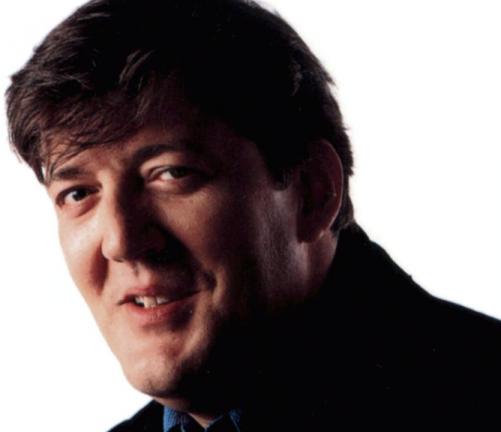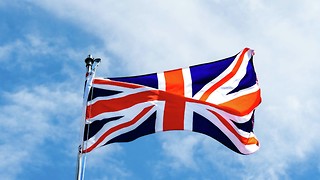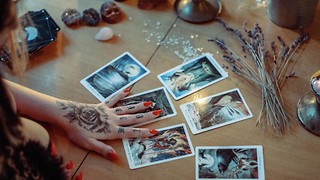A Little Bit of Fry
Footlights’ finest talks to about his time as a felon, a funny man, a director and a depressive
What on earth do you ask Stephen Fry in an interview? Good question. I asked him that. His suggestion was: “When would you like this arsing interview and these impertinent blasted questions to come to a sod-mothering end?”
 Stephen Fry started his career with a double expulsion, first from Uppingham School and subsequently from the Paston School. His next escape was even more dramatic. Using a credit card stolen from a family friend he ran away from Norfolk College of Arts and Technology. Upon capture he was sent to Pucklechurch Prison, serving three months for fraud. Stephen Fry was not – you might think - the most likely candidate for a place at our beloved and prestigious University but, nevertheless, spent three happy years studying English at Queen’s College. And what have been the effects of his imprisonment? To this he replies, “It is hard for me to be serious. I think the experience of being banged up (and more importantly of living with people who had been banged up for most of their lives and would be continue to be so) firmed my resolve to get on with life and throw myself into as much as I could.”
Stephen Fry started his career with a double expulsion, first from Uppingham School and subsequently from the Paston School. His next escape was even more dramatic. Using a credit card stolen from a family friend he ran away from Norfolk College of Arts and Technology. Upon capture he was sent to Pucklechurch Prison, serving three months for fraud. Stephen Fry was not – you might think - the most likely candidate for a place at our beloved and prestigious University but, nevertheless, spent three happy years studying English at Queen’s College. And what have been the effects of his imprisonment? To this he replies, “It is hard for me to be serious. I think the experience of being banged up (and more importantly of living with people who had been banged up for most of their lives and would be continue to be so) firmed my resolve to get on with life and throw myself into as much as I could.”
He certainly kept himself well occupied during his three year stint in Cambridge. Involved heavily in Footlights he starred alongside Emma Thompson and his future comedy double-act and life long friend, Hugh Laurie in the 1981 Footlights Revue catching the eye of Granada Television for whom he then worked. Stephen Fry paints a determined but fun-filled picture of these early days. Impressively, whilst at Cambridge he found time to take part in over thirty productions. “You will never again be able to be in such a variety of plays in front of paying audiences,” he explains.
Acting was perhaps Stephen Fry’s first passion and he gushes with advice for the wannabe actor. “Do as much as you possibly can and don’t get bogged down in trying to be professional,” he advises. “ Cambridge is a time when you can play characters three times your age (in the professional world there is a ready supply of sixty year olds) and experiment and live up to the Elizabethan word for “actor” which was “player”. Play, my children, play. Play gracefully and play disgracefully.” He sadly denies any involvement in scandal at Cambridge: “Good gracious. What a question. As if my three years were marred by even the faintest whisper of scandal. There was an occasion when I ate soup with the spoon moving towards me instead of away from me. I believe they still talk of that day.”
His later career has not been concentrated on any one form of artistic expression. Indeed, one of his current projects, a documentary, has even taken him into the realms of zoology, “chasing down vanishing species for the BBC”. In 2003 he made his directing debut with an adaptation of Evelyn Waugh’s “Vile Bodies”. “Bright Young Things”, whilst not popular amongst the press nor a box office hit, thankfully has not discouraged Mr Fry from directing in the future. “Yes, I do plan to direct again. I never had so much fun. I don’t read the papers, haven’t for years and don’t intend to start now.” He has also acted in many films. Amongst numerous others, he has played an incompetant inspector in Gosford Park (2001) and Oscar in the 1997 film “Wilde”. Here, Fry was playing a role he was “born to play”, a character he has named as someone he would like to identify himself with. “I would dearly love to say Oscar, but it would be hubris beyond what is acceptable”. Modest affability seems characteristic of Stephen Fry. He is renowned for his intelligence and wit and yet manages to remain unpretentious. And he takes compliment very graciously, apparently unaware of the inspiration that he is to other people. “My, aren’t you a poppet, though? Am I really? Shucks and simper and giggle and blush.”
It hasn’t all been “giggle and blush”. In 1995, following a nervous breakdown, Stephen Fry walked out of his production, “Cell Mates”. Later, in 2006, he presented the Emmy Award winning documentary, “Stephen Fry: the Secret Life of the Manic Depressive,” by way of explanation. In it he described what it was like to live and work with bipolar disorder. The public response was very favourable. “I have certainly found without one single exception, that people have been positive, kind and often grateful, which has pleased me more than I can say.”
Stephen Fry is not a talent readily defined or restrained to a box. His skills are undeniable and wide ranging. In his own words pigeon-holing is “like saying to someone, ‘I notice you breathe, you go to the lavatory, you shed epithelial layers and you eat. Which of those is most important to you?’ I simply try to be myself”. But how about if he was at Hogwarts, I ask? What character do you most identify with there? Imaginary worlds are easier it seems. “Hmm… Dumbledore I suppose,” says Stephen Fry. “Distinguished, wise, gay and dead. No, hang on. Scratch the dead.”
Incidentally, I asked him: “when would you like this arsing interview and these impertinent blasted questions to come to a sod-mothering end?”
 News / Tompkins Table 2025: Trinity widens gap on Christ’s19 August 2025
News / Tompkins Table 2025: Trinity widens gap on Christ’s19 August 2025 Comment / Find people in Cambridge you disagree with29 September 2025
Comment / Find people in Cambridge you disagree with29 September 2025 Interviews / Joyce Mau’s time as Law Society president29 September 2025
Interviews / Joyce Mau’s time as Law Society president29 September 2025 News / News in Brief: bolstered books, brilliant beers, and booming businesses 28 September 2025
News / News in Brief: bolstered books, brilliant beers, and booming businesses 28 September 2025 News / St John’s Innovation Centre to begin £50m expansion27 September 2025
News / St John’s Innovation Centre to begin £50m expansion27 September 2025







